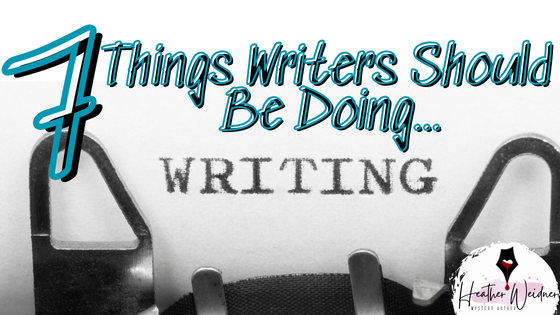7 Things Writers Should be Doing
/Last week, I posted about things that writers need to stop doing. (I know it’s hard. We all get caught up in the stresses, disappointments, and distractions.) This week, I’m focusing on the things writers (at whatever stage of their journey) should be doing. Here’s my list:
Writing. That should go without saying, but sometimes, it’s easy to get caught up in the marketing, events, and other things that the writing takes a back seat. The fabulous Alan Orloff explained the key to writing to me a long time ago. It’s BICFOK. (Butt in Chair; Fingers on Keyboard.)
Make sure you have a website. And if you have one, make sure it’s current. Nobody visits a stagnate site. If you are prepublished, you can still create a website with an about you section, a blog, and the events that you’re attending. Start building your following early. Interesting, entertaining content keeps readers interested.
Find where your readers are on social media and make sure you have a presence there. Most of my readers are on Facebook, Instagram, and TikTok. I focus my energies there, but I also have a presence on the other sites. Build your following. It takes time. I spent the months between signing the contract and waiting for edits and publication to build my following. Your social media sites need constant attention. People ignore stagnant or boring sites.
Make sure you have a newsletter/email list. You own this list, and it’s full of people who are interested in you and your writing. If a social media site shuts down or you’re banned, then you lose your contacts. If you are prepublished, you can still start a list. Take it with you to events and have people sign up on your website. This is one of your most valuable marketing tools, and it's often overlooked.
Invest in a professional headshot. Selfies are good for your socials, but they are not what you want for book covers and publicity. You need a high quality, high resolution photo that can be reproduced in a variety of sizes.
Treat your writing as a business. When I acted like my writing was a hobby, my family and friends also treated it like that. I had to start scheduling my writing time and telling people that I was working. It is work. And learn about the business side that involves contracts, negotiations, money, sales tax, tax laws…the list goes on and on.
Take care of yourself. Don’t stress or overwork yourself to the point that you’re not sleeping, eating right, or exercising. You are your brand and what makes all of this possible.
What would you add?


















